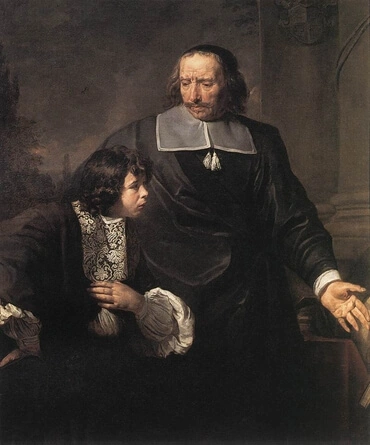Man (male)

The relationship between men and women is deep and nuanced, and one entire book of the Writings -- Conjugial Love -- is devoted to the subject. So we can hardly offer a full explanation here. In a very general sense, though, the Writings say that men are creatures of intellect, driven by the love of growing wise; women, meanwhile are creations of affection, driven by the love of wisdom and the good that wisdom can do. They are formed this way to reflect the Lord's Divine Love and Divine Wisdom, and so that they can form marriages that reflect the unity of Divine Love and Divine Wisdom. Marking differences between men and women can be a touchy thing, but realistically it's easy to see that men tend to love acquiring knowledge whether it has any practical application or not. Many of them can spout out sports statistics or hold court on the workings of the internal combustion engine, even though it is knowledge they are not likely to ever use. They find such knowledge interesting for its own sake. It follows, then, that when the Bible speaks of men, the men represent facts, ideas, knowledge, truth, intellect and wisdom -- or in the negative sense falsity, twisted logic, and reasoning that is devoid of concern for others.
Arcana Coelestia#4478
4478. 'And they spoke to the men of the city, saying' means persuasion. This becomes clear from the meaning of 'speaking' as willing and also as flowing in, dealt with in 2951, 3037. In this case persuading is meant because persuasion exists in one who wills something; and when anyone like this influences another he communicates his persuasion. Furthermore 'the men of the city' means those with whom the truths of doctrine are present, in this case truths like those with Shechem. For in ancient times a city was nothing other than one family belonging to a nation; the dwelling together of those who belonged to one family was called a city. And because in the internal sense it is not the family that is meant but the essential nature of that family so far as life and doctrine are concerned, 'city' means the truth of doctrine and 'inhabitants' the good of doctrine, see 402, 2268, 2449, 2451, 2712, 2943, 3216. But when the inhabitants of a city are referred to as 'the men of the city' it is not the good of doctrine that is meant but the truths of it; for in the Word 'men' means truths, 3134.






